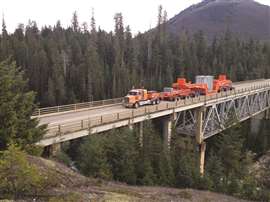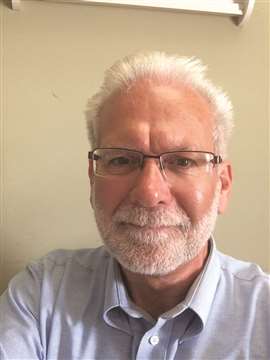What transport challenges can be expected for 2024?
12 February 2024
Avoiding the pitfalls of cargo transport within the USA. Mike Chalmers reports.
With more than 200 new rules in various stages of development or proposal for 2024 at the U.S. Department of Transportation (USDOT), US trucking companies of all sizes and capability are keeping a close eye on the regulatory landscape as this year begins to take shape.
 In many cases, the risks of using a less-than-established US carrier or freight forwarder can show up in the form of loads arriving late, escalated costs and unexpected safety violations.
In many cases, the risks of using a less-than-established US carrier or freight forwarder can show up in the form of loads arriving late, escalated costs and unexpected safety violations.
While those rules and regulations don’t necessarily apply to international shippers or manufacturers directly, they certainly do for companies trying to transport their products stateside. And so, at least staying current on USDOT announcements would certainly serve an international shipper/manufacturer well. To that end, SC&RA monitors USDOT regulations as a way to consistently alert members to any changes or proposed changes that could impact their ability to productively run their businesses.
In addition, international members can benefit from aligning with a domestic freight forwarder or working directly with a carrier with whom a trusted relationship has been, or can be, established.
 Jim Lange, UTC Overseas project director.
Jim Lange, UTC Overseas project director.
“You want to use an established organisation,” emphasised Jim Lange, M.Eng., project director at SC&RA member UTC Overseas – a global forwarder specializing in project cargo based in Houston, Texas, USA. “Navigating the US carrier market directly can be very difficult. Who do you believe? A lot of folks will come to you with a great project list but the majority of that list was probably tendered by a global forwarder.”
Lange added that he’s mostly referring to large-scale capital project work. “Indeed, there are companies out there – many of them we use – who have long-term direct relationships with shippers on a more commodity-type basis. But I’d say it’s hard for a new shipper to come in off the street in the US and figure out who to use.”
If in such a position, Lange indicated that his first question would be simple. “Who am I using to cover my risk? Is it a freight forwarder like us? And what type of experience do they have? What’s their reputation?”
Good experience
UTC is known for its regimented process and extensive vetting programme, said Lange, and they lean into it for a reason. “You’ll often see where, with importers, they’ll use small-scale US forwarders that might be more focused on, say, containerised cargo – trying to get more into the project cargo arena – and they’re tendering loads to whoever will carry them. It can become a real problem. Loads aren’t showing up on time, calls are escalating, loads are being moved without permits, safety violations – that type of thing.”
In addition, said Pete Trimble, safety and risk manager at SC&RA member Keen Transport (Carlisle, Pennsylvania, USA), international shippers may end up working with a carrier that simply doesn’t understand the business. “Especially when it comes to assembly and disassembly and having the correct insurances to be able to handle many of those risks. We know that some of our competitors, even in the transportation side of the business, don’t always understand the value of the particular product they’re hauling, and may not have as much insurance, or the proper insurance they need.”
Keen has direct relationships with major international industry OEMs – established and solidified over 55 years. The company was acquired by international logistics provider Wallenius Wilhelmsen in 2017, giving an even higher level of sophistication in servicing those manufacturers – no matter where they’re shipping from.
 Certain new proposed rule changes at the U.S. Department of Transportation for 2024 appear to be aimed at carriers with more major infractions or negative incidents or occurrences, which is believed to be an overall positive for the industry.
Certain new proposed rule changes at the U.S. Department of Transportation for 2024 appear to be aimed at carriers with more major infractions or negative incidents or occurrences, which is believed to be an overall positive for the industry.
“Our success is based on a combination of dealing with the OEMs directly as well as their dealer network here in the US,” noted Trimble. “And now that we’re owned by Wallenius Wilhelmsen, from the Keen side, we benefit from their ocean shipping capability. We also both deal with a lot of the same manufacturers, so you factor that type of value in – the ocean and shipping, the domestic movement, our storage operations, our ability to do final assembly and modification – and it’s a complete package. That’s a risk that shippers and manufacturers are taking if they just try to figure it all out on their own, or go with a carrier who may not have such pedigree.”
Building relationships
As an established freight forwarder, Lange pointed out, UTC isn’t just talking to whoever can haul the cargo. “As you get into the higher-tonnage capability, the market gets smaller and smaller, so it becomes easier, in terms of vetting. There’s just not that many people that can do it. That said, when something might happen with one of these carriers, we all find out about it.”
Lange explained that UTC works hard to consolidate its carrier list to the ones that perform. “We look at service as a high-ranking attribute – in terms of vetting – and we always vet the underlying carrier. Additionally, what are the terms and conditions? Not only the operational aspects, but also how quickly do they get the loads priced and back to us – how quickly do they get trucks assigned? And are they consistent on pricing, or questionable? Can they cover the load from an asset standpoint? But then, just because you might check all the boxes doesn’t mean we’re putting you on our list. We have to feel there’s a relationship component there as well.”
 Pete Trimble, Keen Transport safety and risk manager.
Pete Trimble, Keen Transport safety and risk manager.
Looking at 2024 through a USDOT lens, Lange sees some of the upcoming rule proposals as favourable to companies already holding themselves to a high standard. “It seems they’re getting more focused on how they’re going to rate and evaluate the carriers,” he said, “with an eye on carriers that have more major infractions or negative incidents or occurrences. And I think that’s a good thing; it’s going to highlight those that don’t have safety programmes in place or who don’t work with owner-operators or drivers to ensure that they’re providing the best, safest service possible. Again, if international companies are considering what’s coming out of the DOT in 2024 in this regard, they should look at some of these new proposals as a benefit in helping to spotlight many of the carriers out there who aren’t doing it the right way.”
Trimble agreed. “It’s something we’ve always taken a lot of pride in – transporting a load in the proper fashion and minimising the potential for any problems along the way,” he said. “I think those situations do exist out there where companies don’t think like we do, and it certainly poses a legitimate risk for OEMs and other shippers looking to transport cargo into and throughout the US.”
* Industry professionals from around the world can register for SC&RA’s upcoming Specialized Transportation Symposium (20 to 22 February, Houston, Texas, USA), which will feature not only an assortment of related committee meetings and access to US state officials, but also a range of informative education sessions covering topics from freight planning to risk mitigation to cost pressures to policy beyond the permit.
For more information, see: www.scranet.org/symposium2024
STAY CONNECTED



Receive the information you need when you need it through our world-leading magazines, newsletters and daily briefings.
CONNECT WITH THE TEAM








